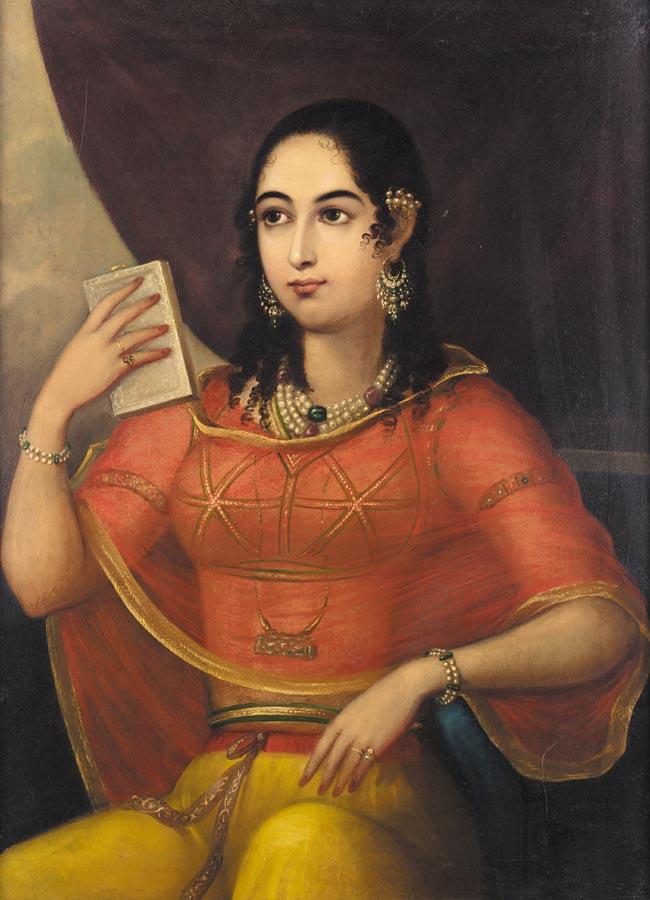FWP:
SETS == HUMOR
The first line sounds earnest and sincere. The beautiful ones are 'moon-faced'-- how could the speaker not want to capture their radiant likeness? And would they deserve less than the finest artistic achievements? Perhaps they suggested, or even demanded, that he learn to paint, since he did it 'for them'. Perhaps they invited, or required, him to become their court, or salon, painter. Under mushairah conditions, we would hear the first line, and then of course have to wait for the second. We speculate about where the second line will go-- perhaps something about how their radiance made his colors blush, or how the canvas glowed in the dark from their moon-faces, or how he was too absorbed in their beauty to hold the brush?
Then the second line hits us all at once, in a wonderfully comic comedown. The speaker turns out to have not the slightest interest in painting, and not a word to say about it. He is supremely practical, and he's reporting his technique for getting access to beautiful ones, in the 'How to Succeed' tone of a dating guide. He will surely go on to advise his readers to carry their paint brushes very conspicuously, and to make sure there are a few small, becomingly color-coordinated paint stains on their shirts. (For a another enjoyably ironic verse about professional credentials and access to the beloved, see {174,7}.)
In the second line we learn, in short, that by no means does the speaker really want to paint pictures of the beautiful ones. He wants to have some kind of entree into their presence, so that he can hope eventually to become their lover. For his real project, a painted picture is irrelevant. He wants not an image, but at all costs 'a meeting'.
For the other, very few examples of verses about drawing or painting, see {6,1}.
The commentators insist that painting is really a coded reference to poetry-composition. Certainly nothing in the verse encourages us to think so. It might be the other way around, in fact. If a recommendation/pretext for meeting is needed, why shouldn't poetry suffice? Yet it apparently doesn't, since the poet/lover has to go out and (pretend to) learn to paint in addition. This adds another note of humor and irony to the whole situation-- our knowledge that the poet already possesses (and is in the very act of demonstrating) a much more valuable credential or recommendation than the one he claims to have acquired. Nothing in the verse forbids the commentators to interpret 'painting' as 'poetry' of course, but they have to do it on their own responsibility, as a secondary move, after the primary, internally-generated logic of the verse has been established.
Note for grammar fans: sīkhe can be interpreted as short for the adjectival past participle sīkhe huʾe , to avoid any concerns about the lack of ne . A literal translation of sīkhe haiñ would thus be 'we are in a state of having learned'.
This 'Portrait of a Bibi' (1785), attributed to Johann Zoffany, is said to be of a Lakhnavi woman called Jahan (the rest of her name is illegible on the painting); she was perhaps the mistress of an East India Company officer:

Nazm:
Painting is an implication for poetry, but among those with the temperament of lovers, there is painting and poetry, dastan-recitation and witty repartee, and music too. That is, to play the dhrupad or the bīn -- and in addition to that, playing chausar and card-games is a separate skill-- and another condition is to be among the people of the wine-house [ḳharābāt]. When they are adorned with this jewelry, then all the means for gaining the company of the beautiful ones are at hand. (140)
== Nazm page 140